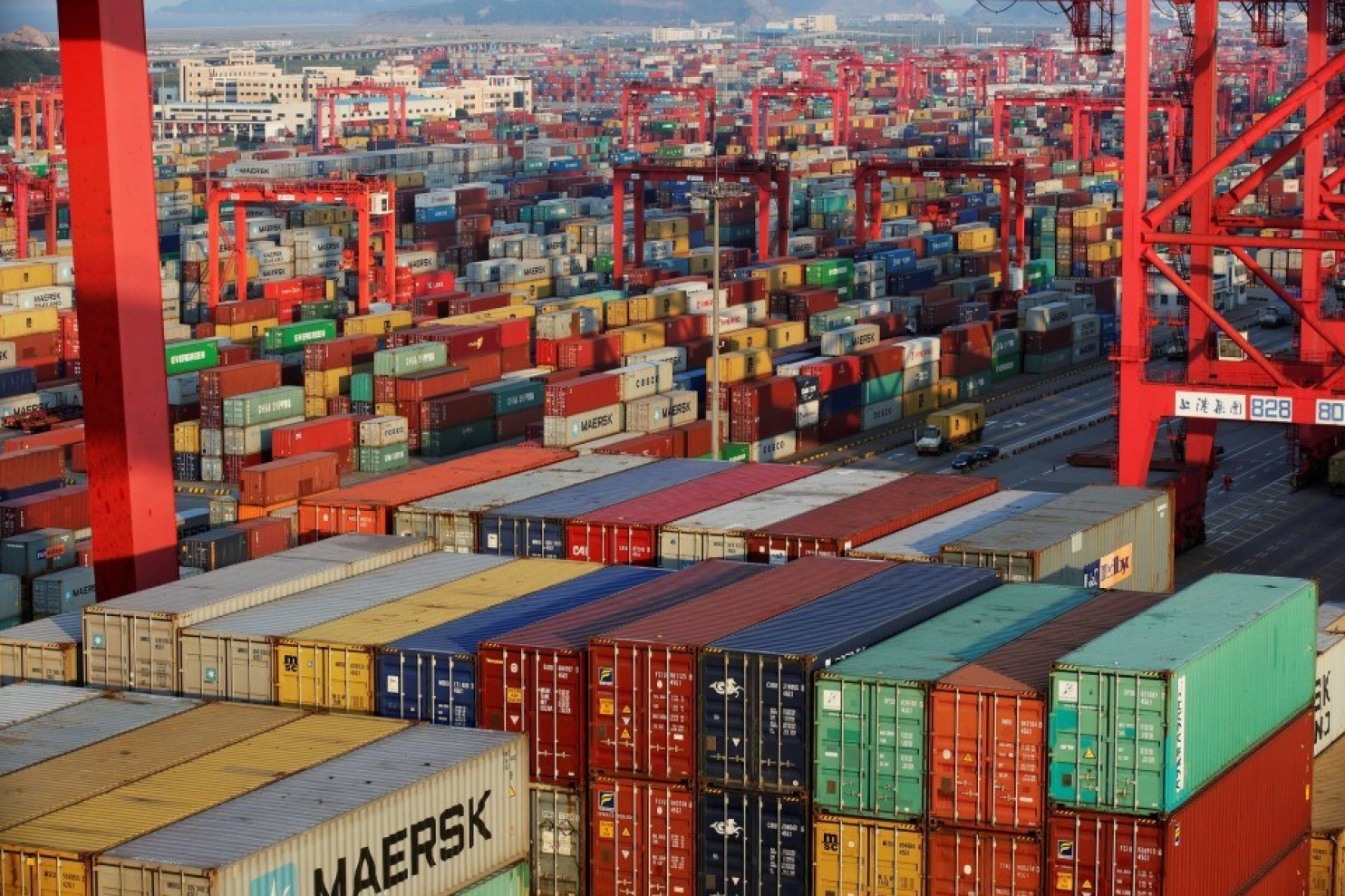
The New York Times reports, "President Trump on Wednesday played down the importance of securing a trade deal with China as he prepared to meet with President Xi Jinping of China this weekend, saying he was ready to proceed with additional tariffs if negotiations between the countries failed to get back on track. Mr. Trump said it was 'possible' that a deal could ultimately be reached and that China was eager for an agreement. But he said he was prepared to impose tariffs on another $300 billion of Chinese products, on top of the 25 percent levy he has already placed on $250 billion of Chinese imports. Mr. Trump also indicated he might limit the next round of tariffs to just 10 percent. 'My plan B is maybe my plan A,' the president said in an interview with Fox Business Network. 'My plan B is that if we don't make a deal, I will tariff and maybe not at 25 percent, but maybe at 10 percent, but I will tariff the rest of the $600 billion that we're talking about.'"
- The Wall Street Journal reports, "Billions of dollars worth of China-made goods subject to tariffs by the Trump administration in its trade fight with Beijing are dodging the China levies by entering the U.S. via other countries in Asia, especially Vietnam, according to trade data and overseas officials. The Trump administration has for more than a year sought to weed out the practice known as transshipment, in which Chinese exports typically are minimally processed or altered during a brief stop in a third port and then re-exported as a product originating from the third port. Such circumvention threatens to crimp U.S. plans as it prepares to add tariffs on to $300 billion of Chinese exports, from toys to electronics, essentially covering all its China trade. The U.S. already has placed 25% tariffs on some $200 billion of Chinese exports."
- Reuters reports, "Hacked by suspected Chinese cyber spies five times from 2014 to 2017, security staff at Swedish telecoms equipment giant Ericsson had taken to naming their response efforts after different types of wine. Pinot Noir began in September 2016. After successfully repelling a wave of attacks a year earlier, Ericsson discovered the intruders were back. And this time, the company's cybersecurity team could see exactly how they got in: through a connection to information-technology services supplier Hewlett Packard Enterprise. Teams of hackers connected to the Chinese Ministry of State Security had penetrated HPE's cloud computing service and used it as a launch pad to attack customers, plundering reams of corporate and government secrets for years in what U.S. prosecutors say was an effort to boost Chinese economic interests."
- 2019-06-25 Global Telecom Carriers Attacked by Suspected Chinese Hackers
- 2019-06-24 U.S., China Discuss Xi-Trump Summit as Trade Fights Simmer
- 2019-06-23 US Considers Requiring 5G Equipment for Domestic Use Be Made Outside China
- 2019-06-21 Hong Kong protesters surround police headquarters, demand extradition bill be truly scrapped
- 2019-06-20 Xi Jinping Arrives in North Korea, With Many Eyes on Trump
- 2019-06-19 Senior U.S.-Chinese trade negotiators to confer before Trump-Xi G20 meeting
- 2019-06-18 Trump says U.S., Chinese teams to restart trade talks ahead of G20
- 2019-06-17 Companies in furious bid to prevent new China tariffs as summit looms
- 2019-06-13 China’s Trade Frontman Points, With Laser, to Bright Side of U.S. Tensions
- 2019-06-12 Wall Street Is Lending Billions to China's Hottest Tech Unicorns
- The New York Times 'My Plan B Is Maybe My Plan A': Trump Threatens New Tariffs on China
- The Wall Street Journal Companies Dodge U.S. Tariffs on China by Rerouting Goods
- Reuters Inside the West's failed fight against China's 'Cloud Hopper' hackers
- The New York Times Why Hong Kong's Protesters Are Turning to G20 Leaders for Help
- The Wall Street Journal American Tech Companies Find Ways Around Huawei Ban
- Bloomberg U.S. Voters Divide Along Party Lines on Trump's China Trade War
- The Wall Street Journal China's Consumers Turn Cautious, Weakening President Xi's Hand Before Trump Meeting
- Bloomberg Australia Won't 'Sit Back' as U.S.-China Fight Worsens, PM Says
- CNN China bans all meat from Canada alleging forged customs certificates
- Bloomberg China Can Fish in Philippines' Exclusive Waters, Duterte Says
- Business Insider Trump isn't the only major world leader who will challenge China's Xi Jinping at the G20 meeting
- Reuters Pro-China groups step up offensive to win over Taiwan
- The New York Times Patriotic Movie Apparently Falls Afoul of China's Censors
- The Diplomat Hong Kong's Extradition Bill and Taiwan's Sovereignty Dilemma
- The New York Times Trump Takes On China and Persia at Once. What's to Worry About?
- Foreign Policy How Democrats Can Get Tough on China—Without Imitating Trump
- Forbes Next Up In China Trade War: Sanctions?
- The National Review Why Won't American Politicians Talk about Chinese Authoritarianism?
- Bloomberg Trump's Not Wrong About the Dollar
